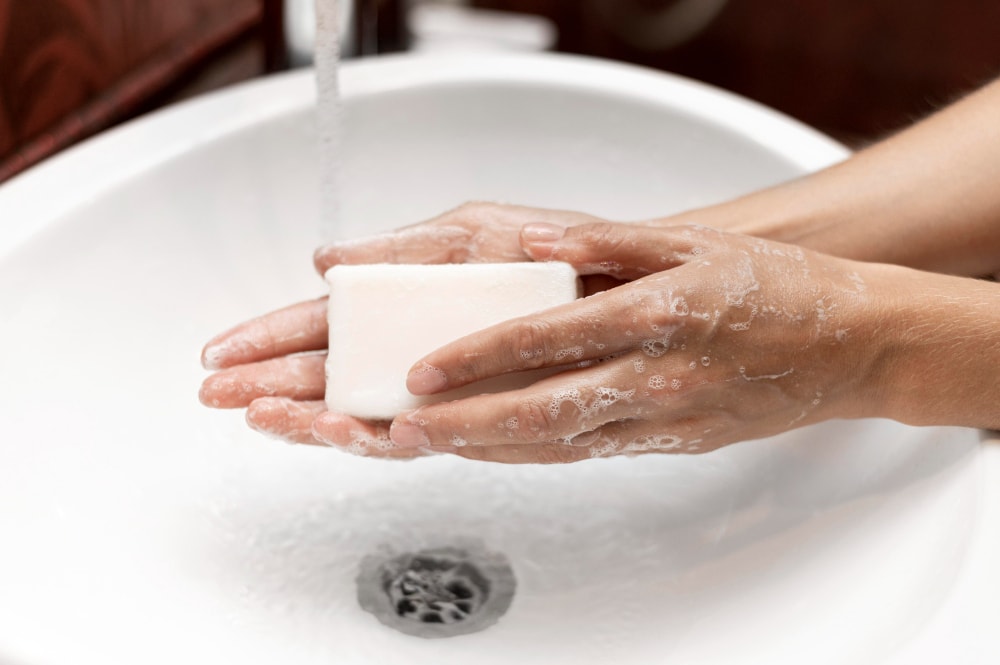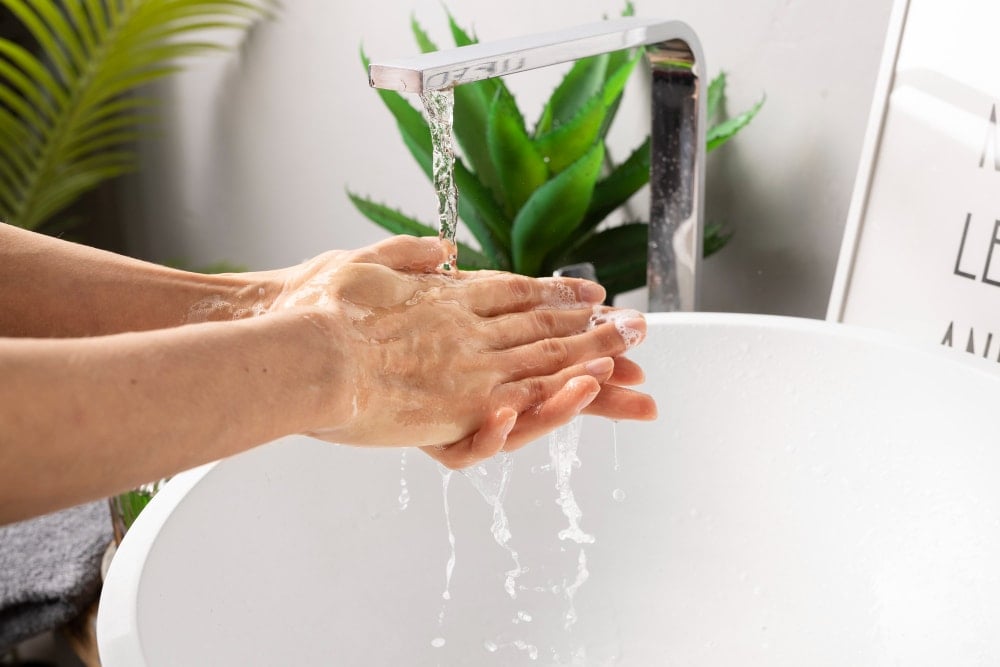
In a time when health and safety are top priorities, especially for Filipino families facing daily challenges with pollution, illnesses, and public health concerns, hand hygiene has become more than just a habit—it’s a vital defense against the spread of germs.
With the Philippines’ tropical climate and dense population, viruses and bacteria thrive easily, making clean hands essential in preventing illness at home.
It’s easy to spread germs. From blowing your nose, coughing or sneezing, to preparing food, daily activities can spread germs from our hands to surfaces, mouths, or even loved ones. The risk becomes greater when handling raw meat, animal waste, or pet food.
Ensuring hand hygiene is not only about cleanliness—it’s a powerful, affordable way to stay healthy.
How to Practice Good Hand Hygiene at Home
To help stop the spread germs of germs, it’s important to practice good hand hygiene. In most situations, you can stay healthy when you keep your hands properly washed and maintained.
Here are practical, effective hand hygiene tips for families to keep their homes safe and their loved ones healthy.
1. Know the Key Times for Washing Your Hands
Washing your hands at key times significantly reduces the risk of illness.
Always wash after:
Blowing your nose, coughing or sneezing
Using the toilet
Handling pet food, animal feed, or cleaning animal waste
Touching raw meat or preparing food
Handling food or eating food
Touching garbage
Caring for a sick person or treating a wound
Returning from outside (public transport, market trips, etc.)
Using shared common objects like computer keyboards or elevator buttons

2. Use the Preferred Method: Soap and Water
The preferred method for cleaning and washing your hands is still plain soap and water.
Here’s how to do it correctly:
Wet your hands with running water (ideally warm water)
Apply soap (plain or antibacterial soap). Make sure to apply enough soap
Rub your hands together to create a lather, making sure to scrub all areas—*fingers*, between fingers, backs of hands, and under nails to make sure you get all the germs off the hard-to-reach nooks and crannies
Sing the “Happy Birthday” song twice to ensure enough time (around 20 seconds)
Rinse thoroughly under running water and turn off the faucet to help conserve water
Dry with a clean towel, paper towel, or air dry
When you wash your hands, running water isn’t enough. Make sure to apply soap; even plain soap helps remove more germs than water alone.
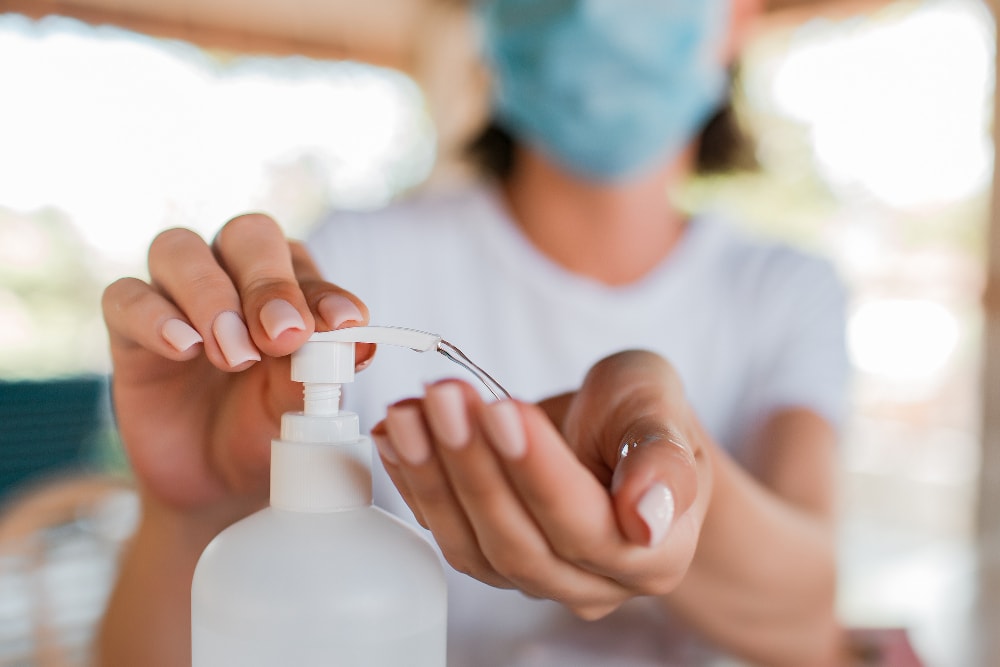
3. Use Alcohol-Based Hand Sanitizer When Soap Isn’t Available
When outside or in situations where soap and water aren’t accessible for washing your hands, use rubbing alcohol or hand sanitizer (with at least 60% alcohol).
With your alcohol or hand sanitizer, follow these steps:
Apply enough product to cover all fingers and hand surfaces
Rub your hands together to lather until dry (about 20 seconds)
Avoid touching anything until your hands are fully dry
However, hand sanitizers don’t eliminate all types of germs and may be less effective if hands are visibly dirty or greasy.
4. Teach Children Proper Hand Hygiene
Children are more vulnerable to germs. Because they play around so much, germs spread really easily with children.
Teach them early:
Use fun songs like “Happy Birthday” to time handwashing
Make handwashing part of their routine—after play, before eating food, after using the toilet
Teach them that washing your hands is important before they touch any wound
Supervise and help younger kids to ensure they clean their hands properly
5. Be Extra Careful When Handling Food and Pet Products
When touching raw meat, washing your hands with soap and water immediately after helps prevent germs from spreading to surfaces or other food. The same applies to handling pet food and pet treats, which may contain animal waste residue or bacteria.
Designate separate tools or bowls for animal feed to avoid cross-contamination. Always wash your hands thoroughly afterward.
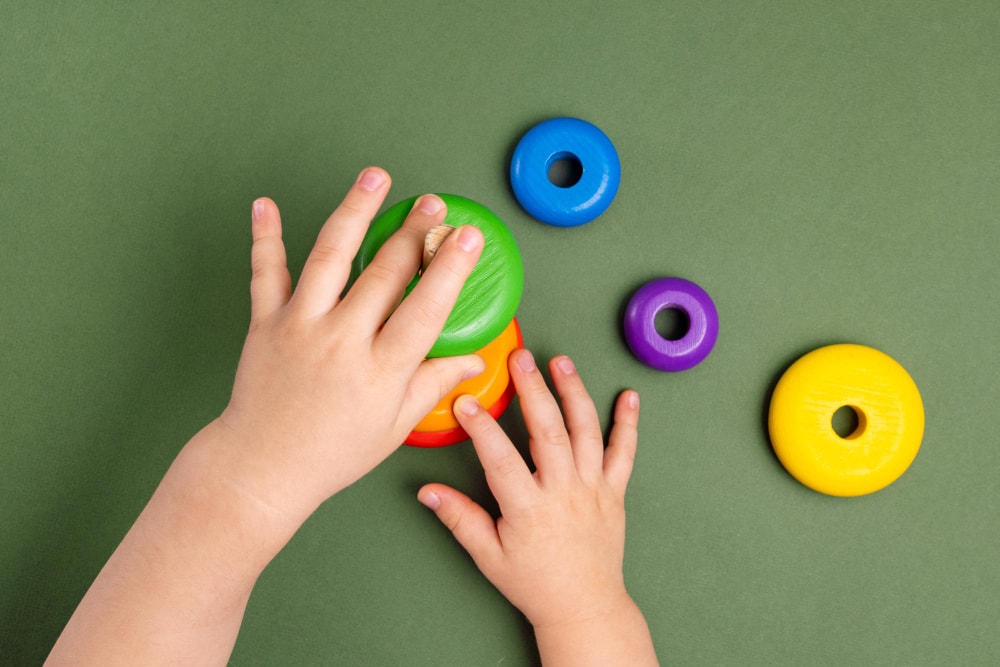
6. Don’t Forget Commonly Touched Surfaces
Even if your hands are clean, touching dirty surfaces can undo your efforts. Regularly disinfect:
Computer keyboards, elevator buttons, and doorknobs
Kitchen surfaces, especially when preparing food
Phones, remotes, and other common objects
Keep hand sanitizer accessible near these spots for quick cleaning after contact.
7. Practice Good Hand Hygiene After Contact With a Sick Person
When caring for someone who’s sick, practice strict hygiene. In these cases, you’re a healthcare provider and should be washing your hands and keeping your hands clean.
Wash hands after every interaction, especially after helping with meals or using tissues
Use gloves when necessary, but still wash hands afterward
Avoid touching your mouth, nose, or face without washing your hands first
This is especially important in homes caring for elders or individuals with pre-existing conditions—similar to practices in healthcare settings or a nursing home.
8. Ensure Everyone Has Access to Cleaning Supplies
Make sure every bathroom and kitchen in your home has:
Soap (preferably antibacterial soap)
Clean or paper towels
An alcohol-based hand sanitizer for guests or quick access
A designated spot for air drying hands when towels aren’t available
Refill and replace these items regularly, especially in homes with children.
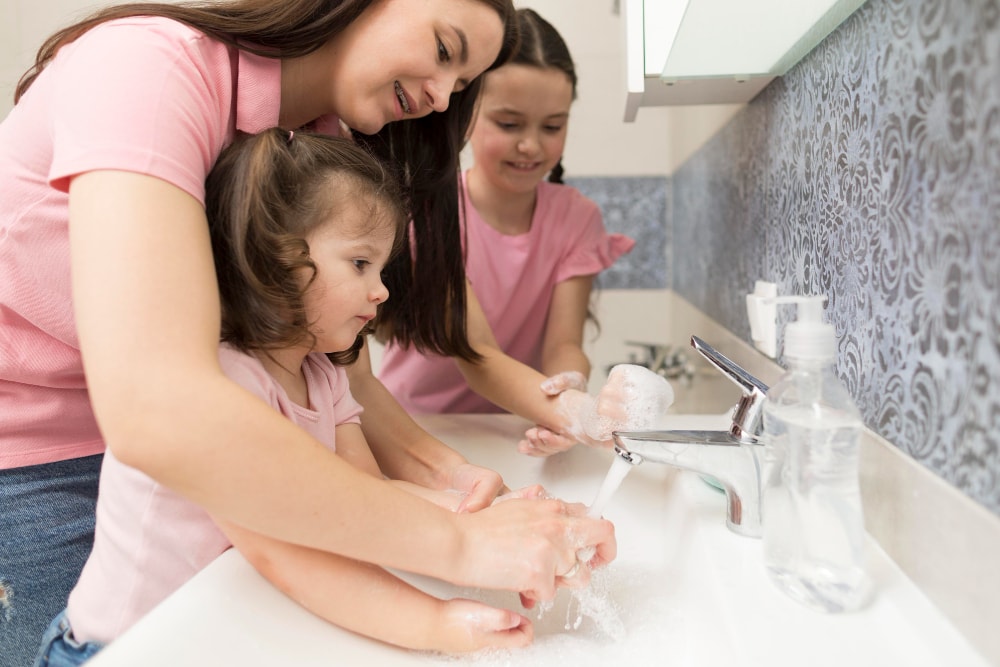
Camella: Supporting Hand Hygiene in Filipino Homes
Recognizing the importance of hand hygiene, Camella has implemented community-wide initiatives to help families stay healthy. Championing washing your hands and promoting hand hygiene is part of Camella’s health advocacy.
Within Camella properties are:
Handwashing stations with soap and water are placed in common areas
Alcohol-based hand sanitizer dispensers are available in clubhouses, gyms, and playgrounds
Educational materials on hand hygiene tips are distributed during community events
Regular sanitation and cleaning of common objects and shared spaces are conducted
Pet-friendly zones have clear instructions on handling pet food and managing animal waste properly
Camella’s dedication ensures that Filipino families not only enjoy beautiful, secure homes—but also live in communities that actively promote health and hygiene.
By taking these hand hygiene tips seriously at home and in our communities, we protect not just ourselves, but everyone around us. Whether it’s before eating food, after blowing your nose, or when touching garbage, keeping our hands clean is a small act with gigantic impact.
Let’s make clean hands the norm for safer, healthier communities.
